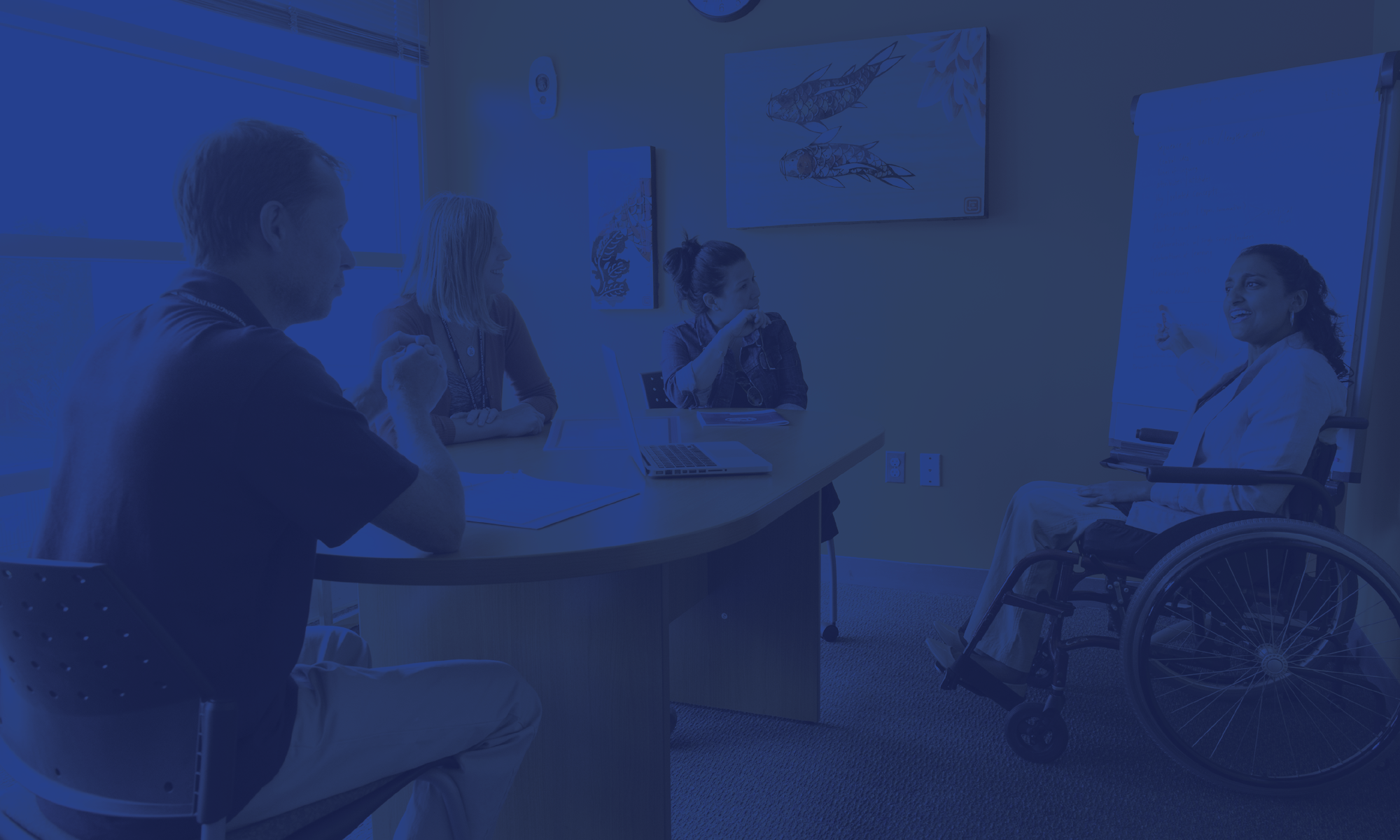By Andrew Johnson, Policy Analyst
Substance use disorders (SUDs) are on the rise. SUD is considered a mental health disorder, and when it substantially limits one or more major life activities – such as employment – it can be considered a disability under the Americans with Disabilities Act when an individual is receiving recovery treatment. Individuals with SUD may need supports recovering from SUD and attaining employment.
Research shows that SUDs are particularly common among incarcerated individuals; an estimated 65% of the United States prison population has an active SUD. Furthermore, studies indicate that disability prevalence may be higher among the prison population, with more than 40% of incarcerated individuals reporting a nonpsychiatric disability. Incarcerated individuals may have even more difficulty accessing treatment for SUD, and those incarcerated for drug offenses are likely to be rearrested within three years. Even though employment is critical to helping formerly incarcerated individuals re-enter their community, they may face additional barriers to employment due to their criminal records.
States are, therefore, working to support the recovery and workforce needs of incarcerated individuals with a SUD, and to ensure equal opportunity in employment. Ohio is one state that has prioritized this issue by taking executive and legislative action as well as leveraging and coordinating existing resources, including disability services and supports.
Coordinating State Agencies through RecoveryOhio
Governor Mike DeWine made SUD recovery support one of his top policy objectives and commissioned the RecoveryOhio initiative through Executive Order 2019-01D. The initiative coordinates the work of state agencies and builds on the state’s existing resources to support recovery needs throughout the state, including employment supports for justice-involved individuals. By ensuring employment, the individual is better positioned to obtain stable housing, gain a sense of purpose, and successfully complete their specialized court program.
Providing Employment Supports through OOD Jobs for Recovery
One key agency contributing to this work is Opportunities for Ohioans with Disabilities (OOD). OOD works with state and local organizations to support Ohioans with disabilities, including those with substance use disorders, in preparing for and securing employment.
As part of the RecoveryOhio initiative, OOD launched the OOD Jobs for Recovery program. This program provides employment supports for individuals with SUD facing charges in the state’s drug court. OOD Jobs for Recovery partners with state agencies, such as the Department of Mental Health and Addiction Services and the Office of Workforce Transformation, to address the needs of justice-involved individuals placed on specialized dockets. Through Jobs for Recovery, OOD places a vocational rehabilitation counselor on a drug court interdisciplinary team to provide employment services and assist in supporting an individual in carrying out their recovery plan.
OOD Jobs for Recovery vocational rehabilitation counselors assist individuals with exploring their strengths, abilities and interests to promote informed choice in identifying their employment goals. Services may include:
- Career exploration and guidance
- On-the-job-support
- Resume and interview preparation
- Work incentives planning
- Job development and placement
- Assistance addressing additional employment barriers
Providing Recovery Services and Removing Barriers to Employment
For justice-involved individuals with SUD, recovery is the first step to employment. The Ohio Department of Mental Health and Addiction Services has partnered with the Ohio Department of Rehabilitation and Correction to address the recovery needs of justice-involved individuals with substance use disorders. Partners provide recovery services to incarcerated individuals needing substance abuse recovery programming. Through an evidence-based holistic approach to alcohol and other drug treatment, program participants gain an improved sense of responsibility and the ability to reenter the community and workforce. Correctional recovery services are funded through the state budget.
In addition, the Ohio legislature enacted Ohio House Bill 1 in 2021, providing additional support to state agencies seeking to provide substance abuse recovery services and employment services to justice-involved individuals. House Bill 1 modifies existing “intervention in lieu of conviction” policies by broadening the scope of recovery options.
The bill further addresses additional barriers to employment that justice-involved individuals with SUD may face by expanding record sealing opportunities and opportunities for charge dismissal for those who complete their recovery plan. By dismissing charges and sealing records, justice involved individuals recovering from SUDs are better positioned to obtain sustainable employment.
Considerations for States
SUD is one aspect of mental health that states are actively addressing, particularly for individuals involved in the justice system. State officials in Ohio are leveraging available resources and establishing partnerships to address the recovery and workforce needs of justice-involved individuals with SUD. The state has also enhanced the flexibility of the judicial system to provide recovery programming to these individuals, rather than prison time, and provides vocational counseling services and job support planning to help individuals with SUD find employment.
Various other states are also implementing policies to support recovery and employment for justice-involved individuals:
- Illinois established drug courts to provide treatment options and alternatives to incarceration.
- Maine requires a comprehensive substance use disorder treatment program (including for alcohol) in all correctional facilities. The program provides screening, assessment, and treatment for justice-involved individuals, and requires ongoing training of staff and coordination with community organizations.
- Mississippi established a pilot program at a regional facility to provide SUD treatment in an effort to reduce drug use and criminal activity and assist individuals in their transitions back into the community.
- New York provides substance abuse treatment, including medication assisted treatment, to individuals residing in correctional facilities.
- Washington expanded a pilot program to create a drug-free correctional system and provides substance use treatment to individuals found to be in possession of drugs.
